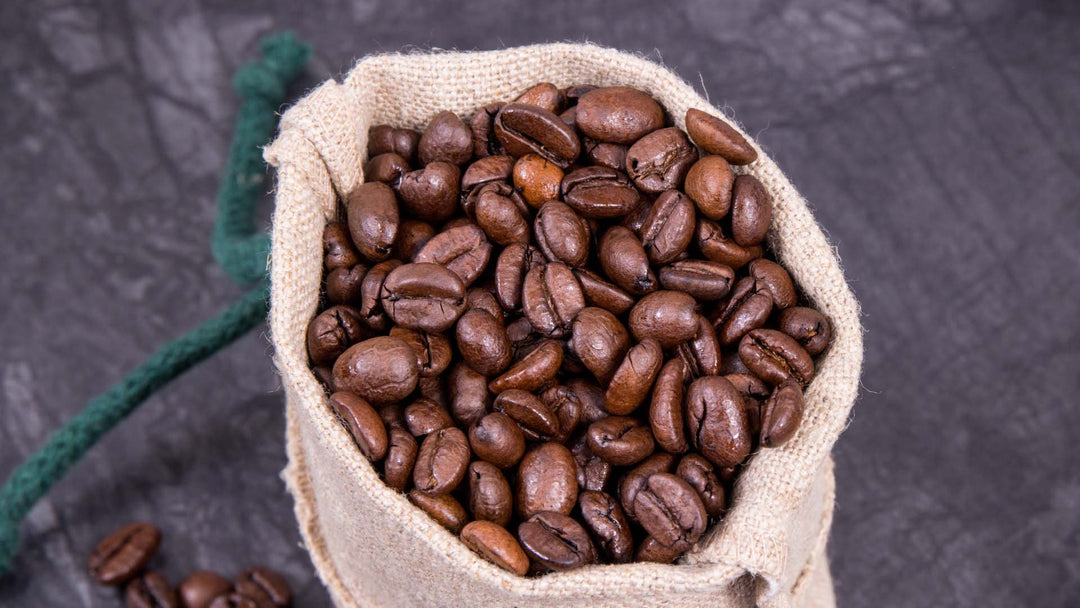What Is So Special About Specialty Coffee?

Introduction
In recent years, the coffee industry has seen a significant shift toward quality, sustainability, and a deeper appreciation for the intricate nuances of the coffee bean. Central to this revolution is the concept of "specialty coffee." But what makes specialty coffee so special? Why has it garnered such a devoted following among coffee enthusiasts worldwide? This article explores the unique attributes that set specialty coffee apart from regular coffee, diving into its journey from farm to cup, the art of brewing, and the cultural impact it has made.
Defining Specialty Coffee
Specialty coffee is not just a marketing term; it represents the highest echelon of coffee quality. According to the Specialty Coffee Association (SCA), coffee must score 80 points or higher on a 100-point scale to be classified as specialty grade. This stringent evaluation considers several factors, including flavor, aroma, aftertaste, acidity, body, and balance. The meticulous attention to detail at every stage of production, from cultivation to brewing, is what ultimately distinguishes specialty coffee.
The Journey from Farm to Cup
The process of creating specialty coffee is labor-intensive and requires a high degree of expertise. Here's a look at the critical steps involved:
- Cultivation and Harvesting: Specialty coffee begins with high-quality Arabica beans, known for their complex flavors and lower bitterness compared to Robusta beans. These beans are often grown at high altitudes in regions with specific microclimates that contribute to their unique flavor profiles. Farmers typically handpick the coffee cherries, selecting only the ripest ones, which ensures a consistent and high-quality product.
- Processing: Once harvested, the coffee cherries undergo processing to remove the pulp and reveal the beans. There are several methods of processing, each affecting the coffee's flavor:
- Washed (or wet) process: The cherries are pulped, fermented, and then washed to remove the mucilage. This method often results in a cleaner, brighter flavor.
- Natural (or dry) process: The cherries are dried with the pulp still attached, imparting a sweeter, fruitier profile to the beans.
- Honey process: This method is a hybrid of washed and natural processes, where some mucilage remains on the beans during drying, creating a balance of sweetness and acidity.
- Anaerobic process: This method involves a type of fermentation that takes place without the presence of oxygen. The coffee cherries are placed in sealed fermentation tanks with one-way valves that let oxygen be pushed out. This method is quite recent and enhances the fruity notes of the coffee. Anaerobic processing can be used as a complementary method to washed, natural, and honey-processed coffee.
- Drying and Milling: After processing, the beans are dried to the optimal moisture level and then milled to remove any remaining parchment layer. Proper drying and milling are crucial to prevent defects and ensure the beans retain their desired flavors.
- Grading and Sorting: The beans are meticulously graded and sorted based on size, weight, and quality. Defective beans are removed to maintain the highest standards.
- Roasting: Roasting is where the coffee's potential is fully realized. Skilled roasters adjust time and temperature to bring out the beans' inherent characteristics. Light roasts preserve the beans' natural flavors, while medium and dark roasts develop more complex and robust profiles.
- Brewing: The final step is brewing, where the expertise of the barista comes into play. Various brewing methods, such as pour-over, espresso, Aeropress, and French press, can highlight different aspects of the coffee's flavor. The precision in grinding, water temperature, and brewing time all contribute to the final cup's quality.
The Unique Characteristics of Specialty Coffee
Several attributes make specialty coffee stand out:
- Flavor Complexity: Specialty coffee is renowned for its complex and diverse flavor profiles. Tasting notes can range from floral and fruity to nutty and chocolaty, with each cup offering a unique sensory experience. This complexity is a result of the meticulous care taken at every stage of production.
- Freshness: Specialty coffee emphasizes freshness. Beans are often roasted in small batches and delivered to consumers shortly after roasting to ensure they are enjoyed at their peak flavor. This focus on freshness contrasts with mass-market coffee, which may sit on shelves for extended periods.
- Transparency and Traceability: Specialty coffee is often traceable back to its origin, including the specific farm or cooperative where it was grown. This transparency allows consumers to understand the story behind their coffee and fosters a deeper connection between producers and consumers.
- Sustainability and Ethics: Many specialty coffee producers prioritize sustainable and ethical practices. This includes organic farming, fair trade certification, and initiatives to support the well-being of coffee farmers and their communities. By choosing specialty coffee, consumers can feel good about supporting responsible and sustainable practices.
- Artistry and Craftsmanship: The journey of specialty coffee involves a high degree of artistry and craftsmanship. From the farmers who carefully cultivate and harvest the beans to the roasters who skillfully develop the beans' flavors, and the baristas who expertly brew each cup, every step requires passion and expertise.
The Cultural Impact of Specialty Coffee
Specialty coffee has not only transformed the coffee industry but also influenced broader cultural trends. Here are some ways it has made an impact:
- Third Wave Coffee Movement: Specialty coffee is a cornerstone of the Third Wave Coffee movement, which views coffee as an artisanal product rather than a commodity. This movement emphasizes quality, sustainability, and direct relationships between producers and consumers. It has led to a proliferation of specialty coffee shops and a growing appreciation for coffee's complexity and diversity.
- Education and Appreciation: Specialty coffee has elevated consumer awareness and appreciation for coffee. Many specialty coffee shops offer educational programs, tastings, and workshops to help customers understand and enjoy the nuances of different coffee varieties and brewing methods.
- Community and Connection: Specialty coffee shops have become community hubs where people gather to enjoy high-quality coffee and connect with others. The emphasis on craftsmanship and transparency fosters a sense of community and shared passion among coffee enthusiasts.
- Innovation and Experimentation: The specialty coffee industry is characterized by innovation and experimentation. Producers and roasters continuously explore new processing methods, roasting techniques, and flavor profiles, pushing the boundaries of what coffee can be. This spirit of innovation keeps the industry dynamic and exciting.
The Future of Specialty Coffee
As the demand for high-quality, ethically-sourced coffee continues to grow, the future of specialty coffee looks promising. Several trends are shaping the industry's future:
- Sustainability Initiatives: With increasing awareness of environmental issues, sustainability will remain a key focus. This includes practices such as regenerative agriculture, reducing carbon footprints, and supporting biodiversity.
- Technological Advancements: Technology is playing an increasingly important role in specialty coffee, from precision farming techniques to advanced brewing equipment. Innovations like smart coffee makers and AI-driven roasting profiles are enhancing quality and consistency.
- Expansion of Origin Diversity: While traditional coffee-growing regions like Ethiopia, Colombia, and Panama continue to produce exceptional specialty coffee, new regions are emerging as producers of high-quality beans. This diversification adds to the richness and variety of specialty coffee.
- Greater Inclusivity: The specialty coffee industry is striving to be more inclusive, supporting diverse voices and promoting equity throughout the supply chain. This includes initiatives to support marginalized communities and ensure fair wages and working conditions for all coffee workers.
Conclusion
Specialty coffee stands out for its exceptional quality, complex flavors, and the dedication to craftsmanship and sustainability at every stage of production. From the meticulous care taken in cultivating and processing the beans to the artistry involved in roasting and brewing, specialty coffee offers a unique and rewarding experience for coffee lovers.
As the specialty coffee industry continues to evolve and innovate, it is shaping not only the way we enjoy coffee but also our understanding and appreciation of this beloved beverage. Whether you're a seasoned coffee connoisseur or just beginning to explore the world of specialty coffee, there's always something new and exciting to discover. So, the next time you savor a cup of specialty coffee, take a moment to appreciate the journey it has taken from farm to cup and the passion of those who have crafted it.
Hayman is a specialty coffee roaster and a proud member of the Specialty Coffee Association since 2015. At Hayman’s online coffee store, you will find a large variety of the most impressive specialty coffees. All of these delicious coffee treasures are available as whole bean, ground coffee, and as coffee pods/capsules compatible most single-serve machines – click here to buy now, we are offering free worldwide shipping on all orders!










